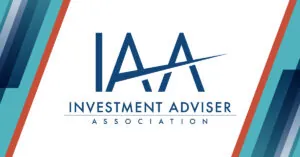This website uses cookies so that we can provide you with the best user experience possible. Cookie information is stored in your browser and performs functions such as recognising you when you return to our website and helping our team to understand which sections of the website you find most interesting and useful.
Study: More Active Investing Drives Greater Market Efficiency
July 12, 2022
Active investors play a critical role in the markets, a new study on market efficiency confirms. The study “How Competitive is the Stock Market?” finds that a rise in passive investing is leading to less “elastic” markets, suggesting that a fresh surge of active investors can counteract that. The study — authored by Valentin Haddad, associate professor of finance at UCLA Anderson School of Management, Paul Huebner of UCLA and Erik Loualiche of the University of Minnesota — has the following implication: pricing would be more precise, and volatility would be lower if more active traders entered the market.
Market Elasticity in Focus
For their study, Haddad and his team drilled down into market elasticity. They analyzed trades by institutional investors and found that the shift in the balance between active and passive investing has led to “substantially more inelastic aggregate demand curves for individual stocks.” In other words, the move from active to passive is pushing the overall market’s aggregate elasticity down since passive investors have a demand elasticity of zero, meaning that they don’t make buy/sell decisions on individual stocks based on price fluctuations like an active investor would.
Market theory states that the market remains balanced as more aggressive traders cancel out the less aggressive ones. However, the academics found that active traders are simply not showing up in large enough numbers to offset the passive effect. This is leading to less accurate pricing, less aggressive trading, higher volatility, and less information for market participants.
The implication: fundamentally driven active investors are essential to ensuring greater market efficiency.


